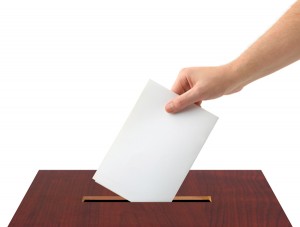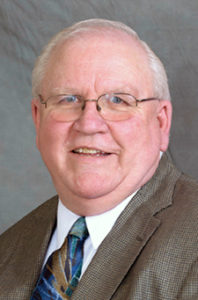 By Steve Brawner
By Steve Brawner
© 2016 by Steve Brawner Communications, Inc.
You know how you’re always told that if you vote for a third party, you’re taking a vote from the major party candidate you’d otherwise support? Sam Husseini, a D.C.-based writer and activist, has a simple solution for that conundrum, “Vote Pact,” but it’s going to require a civil conversation with someone with whom you disagree politically.
The idea, basically, is to swap votes. Say you lean Republican but don’t want to vote for Donald Trump. You’re considering voting for the Libertarian, former New Mexico Gov. Gary Johnson, or independent candidate Evan McMullin, but you’re afraid not voting for Trump helps Hillary Clinton. Using the Vote Pact strategy, you team up with someone who feels pressured to vote for Clinton but would rather vote for the Green Party candidate, Jill Stein. Then you can both vote your conscience. Instead of voting for someone you don’t support, your Vote Pact took a vote from someone you completely oppose.
A group supporting Johnson is making the same argument and has created a structure, Balanced Rebellion, that will pair a Republican and a Democrat who both want to vote for Johnson.
Husseini starting pushing the idea in 2000, when the race between George Bush and Al Gore also featured two well-known third party candidates, Pat Buchanan and Ralph Nader. It didn’t gain much traction then. In later elections, the major parties produced relatively acceptable candidates while third parties didn’t produce many credible alternatives.
This year, Trump and Clinton have historically high unfavorable ratings, and some Americans are looking elsewhere. In Arkansas, six other candidates are on the ballot. But Husseini said voters are trapped by their own fears into voting for the lesser of two evils.
The idea resonates more in swing states than in Arkansas, where Trump seems all but certain to win the state’s six Electoral College votes.
Still, it’s not inconceivable that the race could at least become interesting here. Clinton, Arkansas’ former first lady, is competitive in some surprising states, including Georgia and Arizona. Evan McMullin, a traditional Republican, qualified for the Arkansas ballot Aug. 24 as the Better for America candidate, and he’ll pull votes from Trump, as will Johnson, who also pulls from Clinton. Two of the other candidates, the Constitution Party’s Darrell Castle and America’s Party co-founder Tom Hoefling, are also more conservative than Trump and could attract unhappy Republicans.
Nahh, Trump will win here.
Here’s the thing about the Vote Pact strategy: It requires participants to step out of their comfort zones. You know that old saying, “Never talk about politics in polite company”? Unfortunately, these days it’s, “Never talk about politics unless you’re sure the other person agrees with you, and then talk a lot about it.”
The structures of American society are sowing a lot of division these days. We have significant ideological, political, religious and regional differences anyway. These are heightened by the fact that we tend to live near, work alongside, and socialize with people who look like us, believe like us, and make roughly the same amount of money. Regardless of our political beliefs, it’s easy to find media outlets to reinforce our persuasions and paint others as foolish and ill-intentioned. Others therefore become aliens.
When we express our political opinions, it’s often in completely safe situations, or online, where old rules about civility and respect don’t seem to apply. There, political arguments are so ugly and pointless that we end up “unfriending” those with whom we disagree.
This creates a destructive cycle that entrenches our beliefs and makes us more extreme. Within a cocoon of like-minded individuals, in one conversation President Obama can go from being too liberal to being a communist to purposely helping the terrorists to win, with no one ever backtracking to him just being too liberal. In somebody else’s cocoon, Republicans become the mortal enemy.
Vote Pact creates an opportunity for civil discourse and transforms opponents into allies. The other voter is no longer part of the Left or Right. They’re just a fellow human being trying to vote their conscience. And we’re going to help them do that, while they help us.
Vote Pact won’t change this election’s outcome. But elections aren’t just about picking the winner in a two-person beauty contest, or “less ugly” contest. They’re about letting voters express their beliefs. The two-party, winner-take-all system pressures voters to compromise. With Vote Pact, they can vote with no regrets while bridging the gap with someone with different beliefs but the same desire for their vote to count.
Isn’t that better than another pointless online argument?


